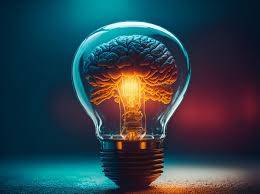5 Ways to Keep Your Mind Sharp
In today's fast-paced world, keeping your mind sharp is essential for staying productive, creative, and mentally resilient. Just as physical exercise strengthens the body, mental exercises can enhance brain function, memory, and overall cognitive performance. Here are five effective ways to keep your mind sharp:
1. Engage in Regular Mental Exercises
Just like physical muscles, the brain needs regular stimulation to stay strong. Activities that challenge your mind can help maintain and even improve cognitive function. Puzzles, games like Sudoku or crosswords, and strategic games like chess force the brain to think critically and problem-solve. Regularly learning new skills, such as a new language or a musical instrument, also provides a mental workout. The key is consistency—regular mental exercise can increase neuroplasticity, the brain's ability to form new neural connections.
2. Prioritize Physical Activity
Physical and mental health are closely linked. Regular exercise boosts blood flow to the brain, which helps improve cognitive functions like memory, attention, and processing speed. Aerobic exercises like walking, jogging, swimming, or cycling are particularly beneficial as they increase oxygen and nutrients to the brain. In addition, physical activity promotes the release of chemicals like endorphins and brain-derived neurotrophic factor (BDNF), which support brain health and cognitive longevity. Even a short daily walk can help sharpen your mind.
3. Get Enough Sleep
Sleep plays a vital role in consolidating memories and processing information. During sleep, the brain clears toxins and forms the neural connections necessary for learning and memory retention. Lack of sleep can impair cognitive functions, such as concentration, problem-solving, and decision-making. Adults typically need between 7-9 hours of sleep each night. Maintaining a regular sleep schedule and creating a sleep-friendly environment can help ensure you get quality rest. Avoiding caffeine late in the day and limiting screen time before bed are simple yet effective strategies to improve sleep quality.
4. Eat a Brain-Boosting Diet
What you eat directly impacts how your brain functions. A balanced, nutrient-rich diet can improve cognitive performance, while poor eating habits can lead to brain fog and decreased focus. Incorporate foods rich in antioxidants, vitamins, and omega-3 fatty acids to nourish the brain. Fatty fish like salmon, walnuts, berries, dark chocolate, and leafy green vegetables are known for their brain-boosting properties. Additionally, staying hydrated is crucial; even mild dehydration can impair cognitive abilities. A healthy, well-balanced diet provides the essential nutrients needed for mental clarity and focus.
5. Practice Mindfulness and Stress Reduction
Chronic stress can take a toll on the brain, impairing memory and cognitive abilities. To keep your mind sharp, it’s important to manage stress effectively. Mindfulness practices such as meditation, deep breathing, and yoga have been shown to reduce stress and improve cognitive functions. Meditation helps strengthen the brain's ability to focus and improve memory by promoting relaxation and reducing the impact of stress hormones. Even simple techniques like taking a few minutes each day to breathe deeply and clear your mind can have significant benefits for your mental clarity.
Conclusion
Keeping your mind sharp is not just about boosting intelligence but also enhancing overall well-being. By engaging in regular mental exercises, staying physically active, prioritizing sleep, eating a brain-boosting diet, and managing stress, you can ensure your brain remains as sharp and agile as possible. Incorporating these habits into your daily routine can help you maintain a clear, focused mind well into old age.



No comments yet
Be the first to share your thoughts!